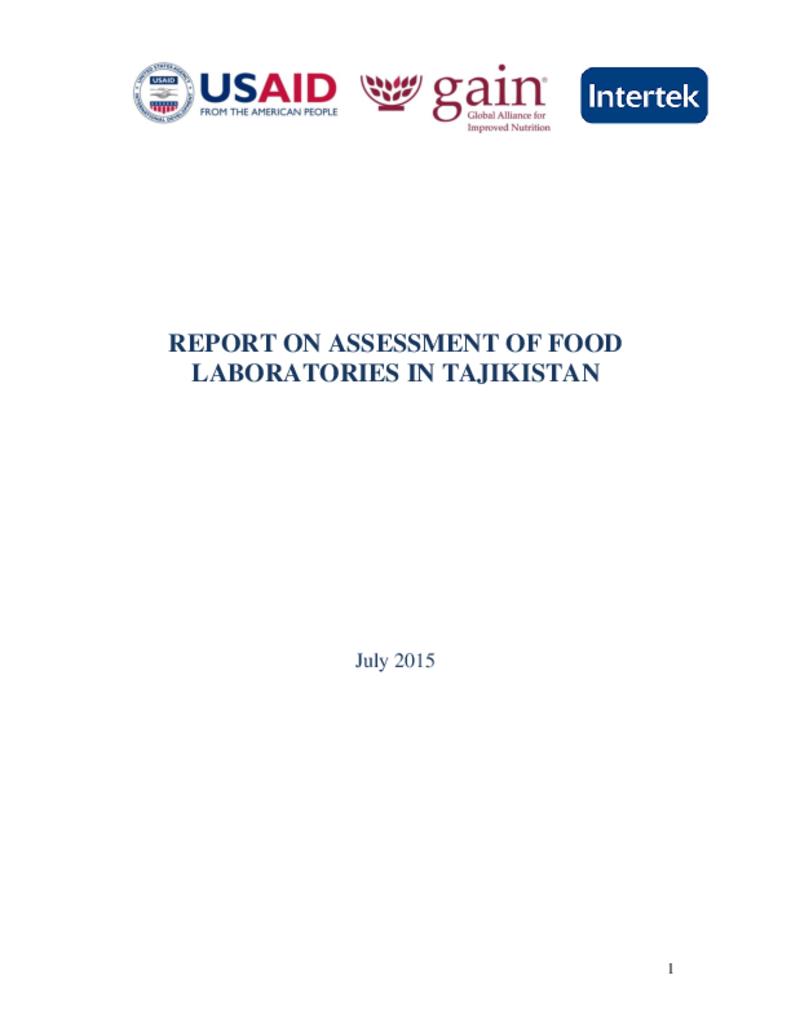Despite significant advances in the reduction of undernutrition, the population of Tajikistan is still affected by iron deficiency anaemia, neural tube defects and other conditions caused by micronutrient deficiencies. Fortification of wheat flour can be a cost-efficient mechanism for providing adequate levels of nutrients in the diets and help offset some of the micronutrient deficiencies for the most vulnerable segments of the population. Notwithstanding previous efforts to introduce wheat flour fortification in Tajikistan, there is currently no national flour fortification program yet there is a high per capita level of wheat consumption in the population.
In 2014, the Global Alliance for Improved Nutrition (GAIN) with funding from the United States International Agency for Development (USAID), began work to establish a sustainable national wheat flour fortification programme. In the framework of this project, GAIN conducted a series of assessments.
This report presents the findings from a laboratory assessment that was undertaken to evaluate the capacity and capability of relevant food laboratories in Tajikistan to analyse premixes and fortified food. The evaluation mainly focused on the laboratory accreditation and quality management, testing scope and sample capacity, instrumentation, facilities/building and training status of personnel. It additionally assessed the capacity to analyse food quality and safety parameters.
